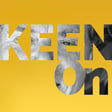
Episode 2522: Edmund Fawcett on Trump as a Third Way between Liberalism and Conservatism
I’ve been in London this week talking to America watchers about the current situation in the United States. First up is Edmund Fawcett, the longtime Economist correspondent in DC and historian of both liberalism and conservatism. Fawcett argues that Trump’s MAGA movement represents a kind of third way between liberalism and conservatism - a version of American populism resurrected for our anti-globalist early 21st century. He talks about how economic inequality fuels Trumpism, with middle-class income shares dropping while the wealthy prosper. He critiques both what he calls right-wing intellectual "kitsch" and the left's lack of strategic vision beyond its dogma of identity politics. Lacking an effective counter-narrative to combat Trumpism, Fawcett argues, liberals require not only sharper messaging but also a reinvention of what it means to be modern in our globalized age of resurrected nationalism.
5 Key Takeaways
* European reactions to Trump mix shock with recognition that his politics have deep American roots.
* Economic inequality (declining middle-class wealth) provides the foundation for Trump's political appeal.
* The American left lacks an effective counter-narrative and strategic vision to combat Trumpism.
* Both right-wing intellectualism and left-wing identity politics suffer from forms of "kitsch" and American neurosis.
* The perception of America losing its position as the embodiment of modernity creates underlying anxiety.
Full Transcript
Andrew Keen: Hello everybody, we are in London this week, looking westward, looking at the United States, spending some time with some distinguished Englishmen, or half-Englishmen, who have spent a lot of their lives in the United States, and Edmund Fawcett, former Economist correspondent in America, the author of a number of important books, particularly, Histories of Liberalism and Conservatism, is remembering America, Edmund. What's your first memory of America?
Edmund Fawcett: My first memory of America is a traffic accident on Park Avenue, looking down as a four-year-old from our apartment. I was there from the age of two to four, then again as a school child in Washington for a few years when my father was working. He was an international lawyer. But then, after that, back in San Francisco, where I was a... I kind of hacked as an editor for Straight Arrow Press, which was the publishing arm of Rolling Stone. This was in the early 70s. These were the, it was the end of the glory days of Haight-Ashbury, San Francisco, the anti-war movement in Vietnam. It was exciting. A lot was going on, a lot was changing. And then not long after that, I came back to the U.S. for The Economist as their correspondent in Washington. That was in 1976, and I stayed there until 1983. We've always visited. Our son and grandson are American. My wife is or was American. She gave up her citizenship last year, chiefly for practical reasons. She said I would always feel American. But our regular visits have ended, of course. Being with my background, my mother was American, my grandfather was American. It is deeply part of my outlook, it's part of my world and so I am always very interested. I read quite a bit of the American press, not just the elite liberal press, every day. I keep an eye on through Real Clear Politics, which has got a very good sort of gazetteer. It's part of my weather.
Andrew Keen:
